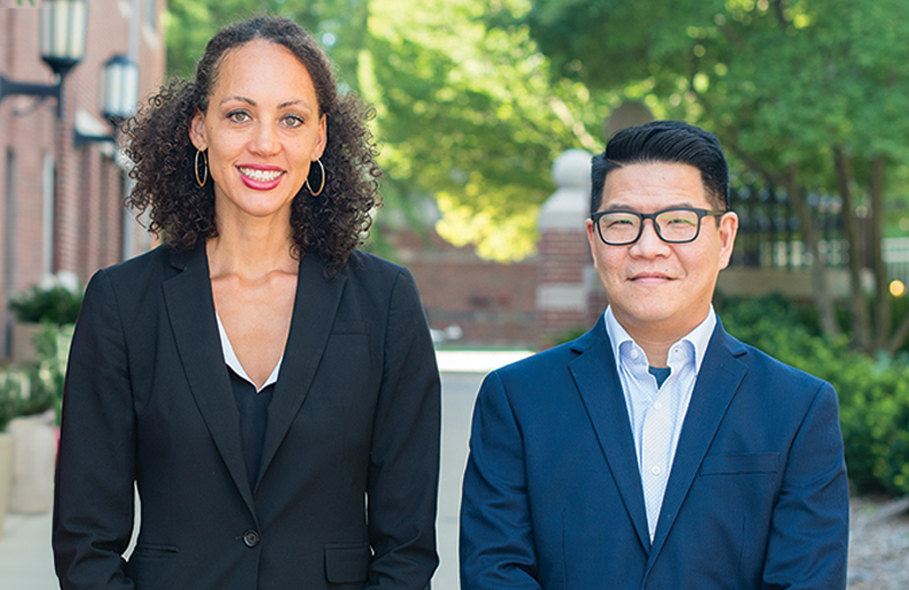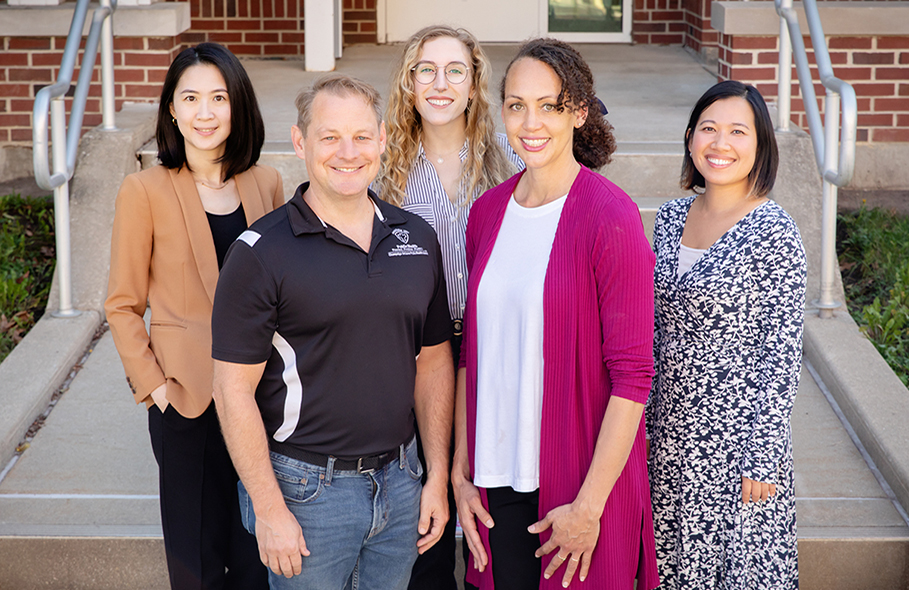Addressing Perinatal Mental Health Issues Through a Collaborative Research Approach
by Andy Olson, Office of the Vice Chancellor for Research and Innovation / Aug 12, 2024

Photo credit: Becky Ponder, School of Social Work
Researchers at Illinois are combining forces to tackle the leading cause of death for pregnant women in the United States: mental health. Karen Tabb Dina, one of the nation’s top researchers in perinatal mental health studies, is co-leading an effort to change that statistic with research collaborator David Huang, who specializes in instructional system design and implementation.
“One in three people that give birth will experience a perinatal mental health problem,” said Tabb Dina, a School of Social Work professor. She noted that number has been climbing since the start of COVID, and that some people are especially impacted, including those who are Black or Native American/Alaska Native, as well as those with disabilities, low incomes, or living in rural areas.
The research effort at Illinois, which is housed at the Beckman Institute for Advanced Science and Technology, where Tabb Dina is a researcher, is part of a multi-university program called Pathways to Perinatal Mental Health Equity program called Pathways to Perinatal Mental Health Equity. The program’s focus is developing better practices for supporting perinatal mental health needs, and training researchers and medical professionals on those practices.
“If it's untreated, that presents risk for both mom and baby,” said Tabb Dina. “It could become substance-use for coping, gestational diabetes, poor birth outcomes, or increased C-sections. For the baby, that could lead to a stay in the NICU, having low birth weight, and trouble with cognition later on.”
The Power of Interdisciplinary Problem Solving
Despite their different backgrounds and expertise, Tabb Dina and Huang, a professor in the College of Education, have been collaborating on perinatal mental health research since 2017, when the two received their first Patient-Centered Outcomes Research Institute (PCORI) award.
“Dr. Huang always brings his expertise in decision-making science, implementation science, and group process,” said Tabb Dina. “I just help people make decisions. A lot of the finesse as a social worker is going into a hospital system and saying, ‘This is a problem, your data says it’s a problem.’ Dr. Huang and I complement each other nicely.”
Huang agrees, noting that he and Tabb Dina share a deep interest in addressing “emerging needs from underrepresented populations and communities.”
“Collectively, we’re contributing to the Pathways project with interdisciplinary perspectives proven by our prior collaborations,” said Huang.
Training the Next Generation of Engaged Researchers
As part of Pathways at Illinois, PCORI is funding one young faculty scholar to come in and work with real patients and professionals to learn more about these issues and how to prioritize them in their research. Tabb Dina and Huang are also establishing a mentorship network for additional scholars, to bring these perinatal mental health issues into focus and train the next generation of engaged researchers – especially faculty who are underrepresented minorities.
“Dr. Huang is bringing his expertise in mentoring and how we educate people to be engaged scientists,” said Tabb Dina. “If researchers show merit and promise, we are going to invite them to be a part of this network and program.”
Throughout the process, Tabb Dina and Huang will work closely with researchers at three other institutions participating in the Pathways program: UMass Chan Medical School, SUNY Downstate Health Sciences, and University of Colorado. A $21 million grant from PCORI funds the work.
When asked what success looks like to him, Huang is focused on the next generation.
“I would like see a sustainable level of interest from the next wave of scholars and practitioners – scientists who are invested in this line of inquiry and engagement through research.”
